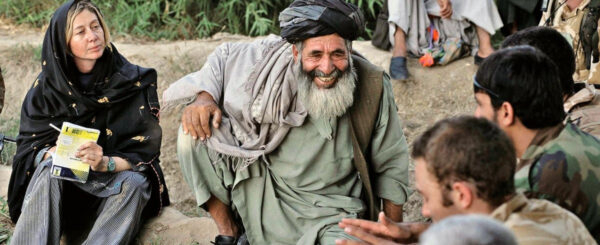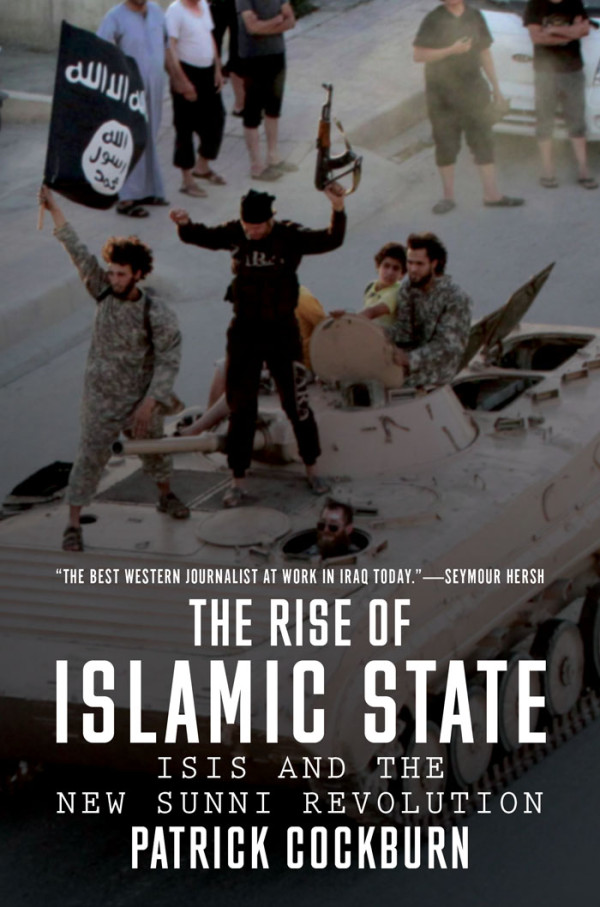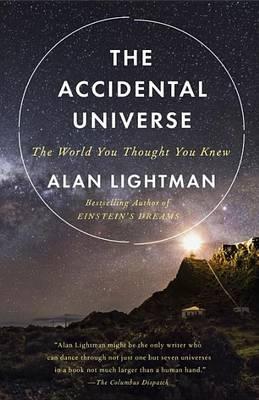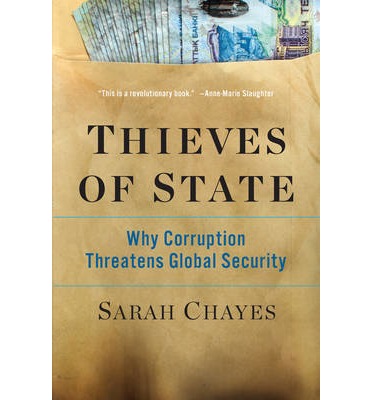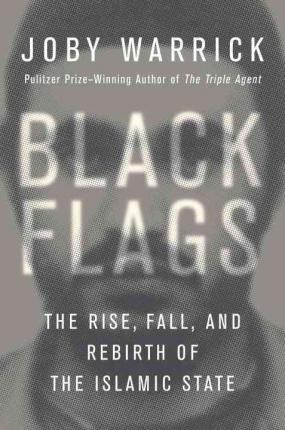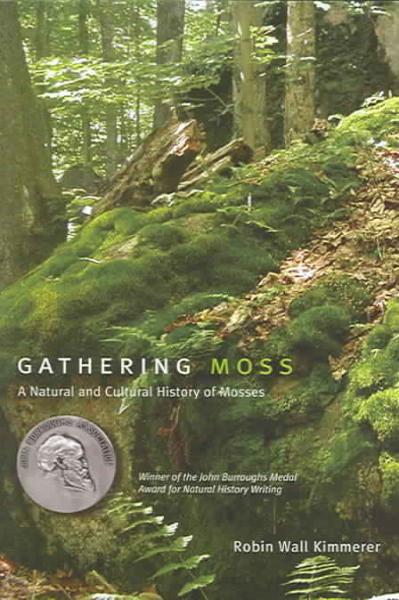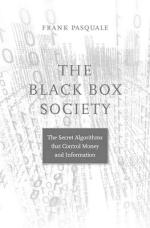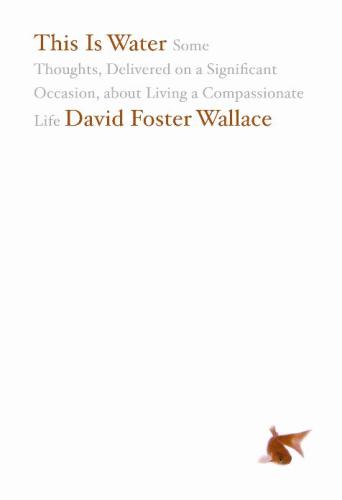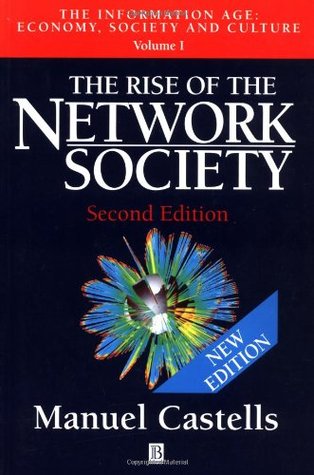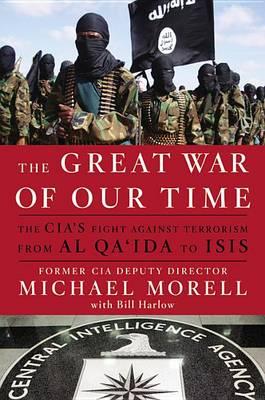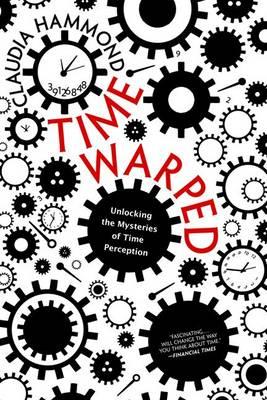Tag holy war
From one of the world’s most admired war correspondents, Christina Lamb, comes a searing indictment of the West’s involvement in wars against fundamentalist Islam, Farewell Kabul: From Afghanistan to a More Dangerous World. The pointless loss of American, British and Australian lives, has achieved nothing; despite the efforts to eliminate the Taliban from the country, their presence has continued to grow. Insurgent attacks have also increased, and the region still struggles against poverty, an unstable infrastructure and a huge number of land mines. Initially billed as the West’s success story by both Bush and Blair, Afghanistan remains a lawless, violent land. The promises made to its people in 2001 have not been fulfilled. Foreign correspondent for one of the world’s leading newspapers, The Sunday Times, educated at Oxford, a Fellow at Harvard University, a member of the National Geographic Society, former British Foreign Correspondent of the year and a multi award winner, Lamb has been reporting on the region of “pomegranates and war” since the age of 21, when she crossed the Hindu Kush into Afghanistan with mujaheddin fighting the Russians and fell unequivocally in love with this fierce country, a relationship which has dominated her adult life. Lamb has fought with the mujahadeen dressed as an Afghan boy, experienced a near-fatal ambush and head-on encounter with Taliban forces and successfully established links with American, British, Afghan government, Taliban and tribal fighters. Her unparalleled access to troops and civilians on the ground, as well as to top military officials has ensured that Farewell Kabul is the definitive book on the region, exposing the realities of Afghanistan unlike anyone before, compelling, moving and impossible to put down.
The Rise of Islamic State, written by senior Middle Eastern correspondent Patrick Cockburn, explores the origins of history’s most successful terrorist group and the unfolding of US and the West’s greatest foreign policy debacle. In military operations, by mid 2014 they had outreached Al Qaeda, taking territory that reached across borders and included the city of Mosul. The reports of their military power and brutality to their victims continue to shock and intimidate the West. Out of the failures of Iraq and Afghanistan, the Arab Spring and Syria, a weakened Al-Qaeda has allowed for new jihadi movements, especially Islamic State.
Alan Lightman’s The Accidental Universe: The World You Thought You Knew is a book about nesting ospreys, multiple universes, atheism, spiritualism, and the arrow of time. He takes the reader back and forth between ordinary occurrences-old shoes and entropy, sailing far out at sea and the infinite expanse of space. He looks toward the universe and captures aspects of it in a series of beautifully written essays, each offering a glimpse at the whole from a different perspective: here time, there symmetry, not least God. It is a meditation by a remarkable humanist-physicist, a book worth reading by anyone entranced by big ideas grounded in the physical world.
Award-winning former NPR correspondent, foreign policy expert, and associate at the Carnegie Endowment, Sarah Chayes has an urgent warning in her new book Thieves of State: Why Corruption Threatens National Security. Militant puritanical religion is presenting as a just alternative to depraved secular rule.
Pulitzer Prize winning journalist Joby Warrick reveals in Black Flags: The Rise, Fall, and Rebirth of The Islamic State how the stain of militant Islam now raising its banner across Iraq and Syria spread from a remote Jordanian prison with the unwitting aid of American military intervention. When he succeeded his father in 1999, King Abdullah of Jordan released a batch of political prisoners in the hopes of smoothing his transition to power. Little did he know that among those released was Abu Musab al-Zarqawi, a man who would go on to become a terrorist mastermind too dangerous even for al-Qaeda and give rise to an Islamist movement bent on dominating the Middle East. Zarqawi began by directing hotel bombings and assassinations in Jordan from a base in northern Iraq, but it was the American invasion of that country in 2003 that catapulted him to the head of a vast insurgency.
Attention without feeling is only a report: “Life exists only because of a myriad of synchronicities that bring us to this particular place at this particular moment. In return for such a gift, the only sane response is to glitter in reply. Knowing the fractal geometry of an individual snowflake makes the winter landscape even more of a marvel. Knowing the mosses enriches our knowing of the world. Mosses and other small beings issue an invitation to dwell for a time right at the limits of ordinary perception. All it requires of us is attentiveness. Look in a certain way and a whole new world can be revealed. Learning to see mosses is more like listening than looking. A cursory glance will not do it. Starting to hear a faraway voice or catch a nuance in the quiet subtext of a conversation requires attentiveness, a filtering of all the noise, to catch the music. Mosses are not elevator music; they are the intertwined threads of a Beethoven quartet.” So writes one of the world’s leading botanists, Robin Wall Kimmerer, in her masterwork Gathering Moss: A Natural and Cultural History of Mosses — an extraordinary celebration of smallness and the grandeur of life, as humble yet surprisingly magical as its subject.
Algorithms can learn. Algorithms can acquire bias. In The Black Box Society: How Secret Algorithms Control Money and Information, eminent Law Professor Frank Pasquale exposes the invasive technology running our lives. In The Age of Terror these systems can be used to extend the control of dark agencies into every corner of our lives. Every day, corporations are connecting the dots about our personal behavior-silently scrutinizing clues left behind by our work habits and Internet use. The data compiled and portraits created are incredibly detailed and invasive. But who connects the dots about what firms are doing with this information? The Black Box Society argues that we all need to be able to do so-and to set limits on how big data affects our lives.
Questions like why our world exists and what nothing is have occupied minds great and ordinary since the dawn of humanity, and yet for all our scientific progress, they continue to do so, yielding only hypotheses rather than concrete answers. But there is something immutably heartening in the difference between the primitive hypotheses of myth, folklore and religion, which handed off such mysteries to various deities and the occasional white-bearded man, and the increasingly educated guesses of modern science. In the title essay of his excellent The Accidental Universe: The World You Thought You Knew which also gives us beautiful meditations on science and spirituality, Alan Lightman points to fine-tuning — the notion that the basic forces propelling our universe appear to be fine-tuned in such a way as to make the existence of life possible — as a centerpiece of how modern scientists have attempted to answer these age-old questions.
Only once did David Foster Wallace give a public talk on his views on life, during a commencement address given in 2005 at the elite liberal arts Kenyon College, the oldest private educational institution in Ohio, America, known for its rural setting and Gothic architecture. Demonstrating that wisdom can come from everywhere, is the sole possession of no individual, no single faith, no single creed, no single god, the schools motto is derived from the religious order of The Daughters of the King, associated with the Episcopal Church but now drawing members from across denominations: Mangnaminem Sustine Cruciter, meaning “With heart, mind and spirit uphold and bear the cross.” At the base of the cross are the letters “FHS”, meaning: “For His Sake”. To many Christ, in 2015, appeared to have departed the Earth scene as a tidal wave of Islamic fundamentalism swept the world. Three years later David Wallace was to commit suicide, becoming a cultural symbol for tortured genius. His address, published in the slim volume This Is Water, captures Wallace’s electric intellect as well as his grace in attention to others. After his death, it became a treasured piece of writing reprinted in The Wall Street Journal and the London Times, commented on endlessly in blogs, and emailed from friend to friend. Writing with his one-of-a-kind blend of causal humor, exacting intellect, and practical philosophy, David Foster Wallace probes the challenges of daily living and offers advice that renews its devotees with every reading. How does one keep from going through their comfortable, prosperous adult life unconsciously? How do we get ourselves out of the foreground of our thoughts and achieve compassion?
Signs and portents are everywhere, disturbance everywhere. With post-apocalyptic imagery now entrenched in popular culture, and all the major faiths prophesying that mankind has reached “The End of Days”, fantastical theories abound on the origins of the internet; that it was an advanced technology gifted across time and space in order to save an emerging race known as humans from an impending apocalypse by allowing the cleverest minds on the planet to aggregate. Whatever the pure truth, perhaps only the Gods will ever know. But there is no doubt the Rise of Islamic State has been paralleled by the Rise of the Network Society. The single most brilliant philosopher and anthropologist in the field has been Spanish sociologist Manuel Castells. His book The Rise of the Network Society was the first in a string of books documenting the economic and social dynamics of the information age.
The Great War of Our Time: The CIA’s Fight Against Terrorism from AL’QAIDA to ISIS offers an unprecedented assessment of the CIA while at the forefront of our nation’s war against al-Qa’ida and during the most remarkable period in the history of the Agency. Called the “Bob Gates of his generation,” Michael Morell, former Deputy Director of the CIA, saw it all–the only person with President Bush on 9/11/01 and with President Obama on 5/1/11 when Usama Bin Laden was brought to justice. Like Ghost Wars, See No Evil, and At the Center of the Storm, The Great War of Our Time is a vivid, news making account of the CIA, a life of secrets, a war conducted under the cloaks of darkness and disinformation; a war the public does not understand.
The Arrow of Time, or Time’s Arrow, is a concept developed in 1927 by the by the British astronomer Arthur Eddington involving the “one-way direction” or “asymmetry” of time. This direction, which can be determined, according to Eddington, by the studying of the organisation of atoms, molecules and bodies. The latest cosmological theories explain why humans, trapped within the decay or entropy of their own forms, possess an illusory sense of time as running in only one direction. Time Warped: Unlocking the Mysteries of Time Perception — a foray into the idea that our experience of time is actively created by our own minds and how these sensations of what neuroscientists and psychologists call mind time are created is written by acclaimed BBC broadcaster and psychology writer Claudia Hammond. In a world of increasing polarisation, where the push to fundamentalism of thought and creed, as exemplified by Islamic State, is contrasted with an accelerating push towards a coming enlightenment of the human condition by some of the world’s greatest intellects, these debates are increasingly vital.
ISIS Exposed: Beheadings, Slavery and the Hellish Reality of Radical Islam, by host of CBN’s The Watchman Erick Stakelbeck, unveils how the propaganda masters of Islamic State are determined to get the West’s attention. They’ve humiliated the Iraqi Army trained by America and seized territory in Iraq that had been secured at the cost of so much American blood and treasure. They’ve beheaded American journalists on camera in a direct challenge to the power and resolve of the United States. And now ISIS is calling for “city wolves” across the United States, Europe and Australia to act on their dedication to the Islamic State’s blood-drenched ideology and murder random Americans going about our daily business.
